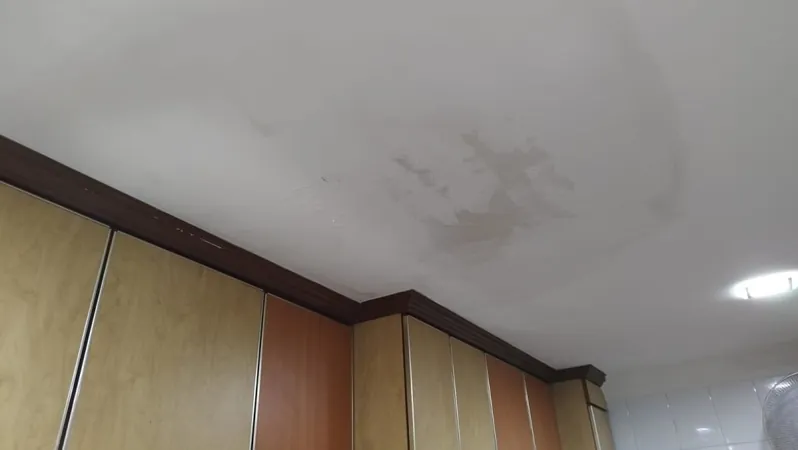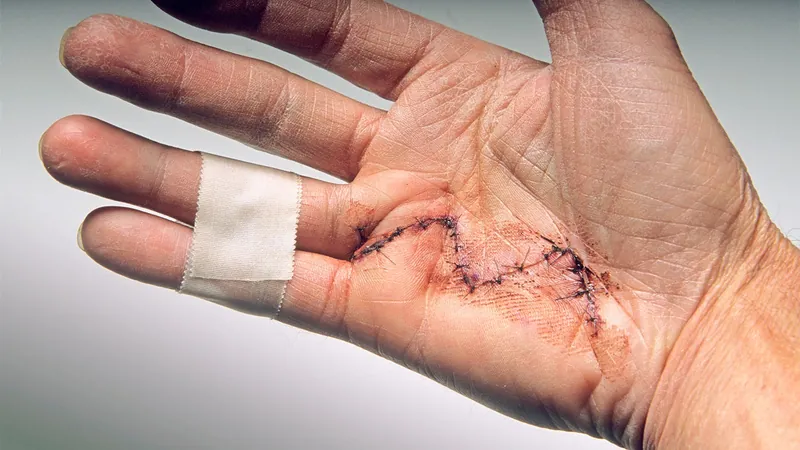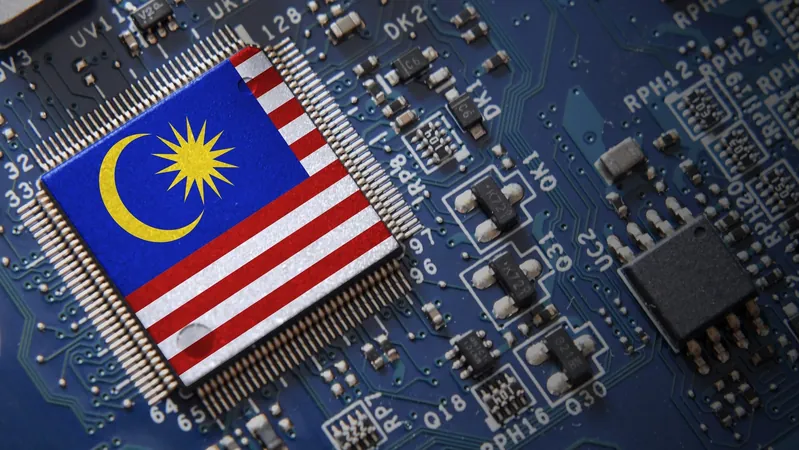
Tampines Residents Face Ceiling Leaks and Mold Issues Amid Solar Panel Installations; HDB Denies Causation
2024-10-09
Author: Mei
SINGAPORE:
A residents' distress is palpable in Tampines as prolonged rainfall last December exposed critical issues within their homes. Mr. David Mohan, a 66-year-old retiree living on the top floor of a Housing and Development Board (HDB) block along Tampines Street 21, shared his frustration over water dripping from his kitchen ceiling for days. Pails placed strategically under the leak filled up alarmingly fast, necessitating sleepless nights for him and his wife to manage the accumulating water.
"It felt like it was raining inside my house," he lamented, referring to the distressing situation as the water leak coincided with the installation of solar panels on the building's rooftop.
After alerting the town council and HDB, Mr. Mohan had his ceiling patched up by the end of January, but lingering concerns about potential damages to his kitchen's false ceiling and nearby built-in cabinetry prompted him to seek a thorough check by a contractor once the installation of solar panels is finalized.
Mr. Mohan isn't alone in this predicament. Several of his neighbors residing on the top floors reported similar grievances—ceiling leaks, mold growth, and unsightly water patches. Some residents expressed concerns that the ongoing solar panel work is to blame for these problems.
In response to these worries, HDB clarified that pre-installation inspections had identified existing ceiling cracks and leaks, which the solar panel contractor has been rectifying on a goodwill basis. HDB assured the public that the installation process would not compromise the quality of the existing roofs, explaining that their contractors do not drill into the roofing. Instead, the systems are secured with concrete ballast and protective felt pads to prevent water infiltration.
The HDB blocks in this district, constructed between 1982 and 1987—with many completed in 1984—are naturally aging, raising questions about their long-term structural integrity.
The solar panel rollout at Tampines is part of the government's SolarNova programme. This initiative aims to install solar energy systems on thousands of HDB rooftops across Singapore, promoting sustainability while powering communal amenities like lifts and lights during the day. This move intends to help the HDB blocks achieve net-zero energy consumption and reduce future maintenance costs.
A resident from Block 256 expressed concern over “patches” appearing on their kitchen ceiling and electrical issues that coincided with the construction. Despite approaching the workers for answers, he received little clarity. Another resident, Emily, noted an increase in mold in her bedroom wardrobes, correlating it with the intensification of drilling work. The family has since taken preventive measures to manage the humidity but remains vigilant about future leaks.
HDB's response reassured residents that the solar installations follow strict guidelines to minimize disruption and potential damage. They labeled the spates of leaks reported as historically insignificant, stating that they have typically received fewer than 30 feedback cases annually regarding ceiling leaks in top-floor units since implementing the SolarNova programme in 2018.
Moreover, residents reported frustrations over ongoing noise and delays in the installation process. HDB acknowledged these concerns, attributing delays to material shortages experienced by subcontractors. However, with those issues now resolved, they anticipate all installations to be completed by the end of the year.
In a city aiming for sustainability, the juxtaposition of innovative solar energy initiatives and the realities of aging infrastructure presents an ongoing challenge. As residents continue to grapple with ceilings that leak and mold that grows, the conversation about maintenance and upgrading existing HDB facilities may become increasingly urgent.



 Brasil (PT)
Brasil (PT)
 Canada (EN)
Canada (EN)
 Chile (ES)
Chile (ES)
 España (ES)
España (ES)
 France (FR)
France (FR)
 Hong Kong (EN)
Hong Kong (EN)
 Italia (IT)
Italia (IT)
 日本 (JA)
日本 (JA)
 Magyarország (HU)
Magyarország (HU)
 Norge (NO)
Norge (NO)
 Polska (PL)
Polska (PL)
 Schweiz (DE)
Schweiz (DE)
 Singapore (EN)
Singapore (EN)
 Sverige (SV)
Sverige (SV)
 Suomi (FI)
Suomi (FI)
 Türkiye (TR)
Türkiye (TR)